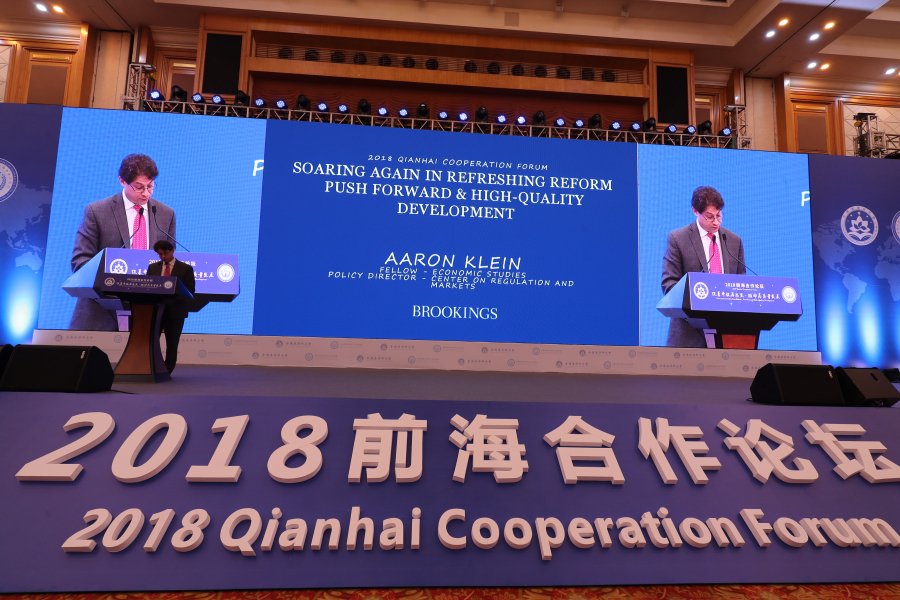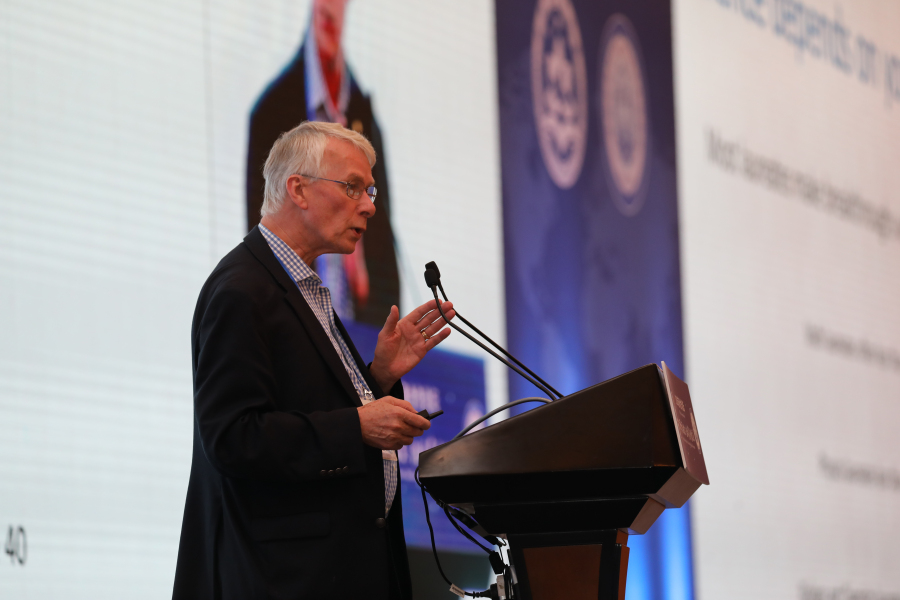Forum on SZ, HK, Macao cooperation
Writer: Tan Yifan | Editor: Lily A | From: | Updated: 2018-07-06
The 2018 Qianhai Cooperation Forum, which aims to deepen the cooperation between Shenzhen and Hong Kong and Shenzhen and Macao, and explore ways to leverage new opportunities brought about by the reform and opening up, was held Thursday in Shenzhen.

Many esteemed individuals were in attendance at the forum including president of the Chinese Association of Hong Kong & Macao Studies and former deputy director of the Hong Kong and Macao Affairs Office of the State Council Xu Ze, vice chairman of CPPCC and former Chief Executive of Hong Kong SAR Tung Chee-hwa, vice chairman of CPPCC and former Chief Executive of Macao SAR Ho Hau-wah, deputy director and member of the Leading Party Members’ Group of the Hong Kong and Macao Affairs Office of the State Council Song Zhe, commissioner of Commissioner’s Office of the Foreign Ministry in the Hong Kong SAR Xie Feng, financial secretary of Hong Kong SAR Chan Mo-po, secretary for economy and finance of Macao SAR Leong Vai-tac, and Shenzhen’s Party chief Wang Weizhong as well as experts, Nobel laureates and entrepreneurs.
With the theme of “soaring again in refreshing reform, pushing forward high-quality development,” speakers and guests shared their views on the key to furthering development for Shenzhen, Hong Kong and Macao and cooperation possibilities for the three cities in keynote speeches and four thematic discussions, respectively.
Tung, who discussed the roles of Qianhai and Hong Kong, said Qianhai should upgrade its industry and seek higher-quality development.
“Qianhai should continue its industrial innovation and pursue a green development model. By deepening its reform and opening up, it can further push forward the economy and industrial upgrading,” Tung said.
“As for Hong Kong, I think it has four advantages when cooperating with the mainland. It has vast capital, a talent pool and advanced information. It enjoys a unique culture that blends both the West and the East. It is renowned as a safe environment and its international financial hub status, and more importantly, it is entitled to the ‘one country two systems’ right, which allows it to enter the mainland market while maintaining its independent system and rules.”
Chan said the further development of Hong Kong and the Greater Bay Area needs science and technology innovation. With support from the Central Government, Hong Kong will strive to build itself into an international innovative science and technology center.
“The SAR government has dedicated a 50 billion yuan (US$7.55 billion) budget to its science and technology development. A total of 20 billion yuan will be invested in Lok Ma Chau Loop for the first phase of the Shenzhen-Hong Kong Innovation and Science Park,” said Chan.
Talking about the development of Macao, Ho said Macao should clearly define its role when cooperating with other cities in the Greater Bay Area. It can make full use of its advantages. “For instance, we think Macao is a bridge for China and Portuguese-speaking countries. It can build a financial service platform and develop special financial industries. We also need to encourage talents to join the development of the Greater Bay Area.”
“Macao can also develop its marine industry and take advantage of Internet-plus industries. It can become a renminbi clearance center between China and Portuguese-speaking countries,” added Leong.
Zhu Min, former deputy managing director of the IMF, said the three cities should cooperate to build a regional smart logistics center by applying AI technology.

Richard J. Roberts
Richard J. Roberts, chairman of the Laureate Science Alliance and a laureate of Nobel Prize in Physiology or Medicine 1993, said that with a large reserve of youth, the three cities should focus on fostering young scientists by respecting youth innovation and eliminating academic bureaucracy.
Li Zexiang, chairman of DJI, released a report on “Talent First of Innovation and Technology” at the forum. He said in future the Greater Bay Area will need about 16,000 startup founders and 136,000 senior engineers. To meet such demands, special colleges should be built for receiving related talents for those industries.
Experts also discussed legal innovation and creative industries.
The forum was sponsored by the authority of Qianhai and the Chinese Association of Hong Kong & Macao Studies.